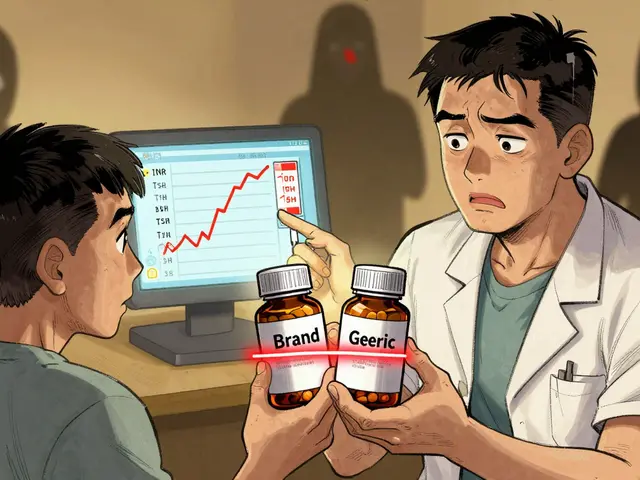March 2024 Archive – Esketamine Nasal Spray Outperforms Quetiapine
If you’ve been following the fight against treatment‑resistant depression, this month’s headline is worth your attention. A new clinical trial shows that esketamine nasal spray works better than quetiapine for patients who haven’t responded to standard therapies. Let’s break down what the study found and why it could change how doctors treat tough cases.
Why This Trial Matters
The researchers compared two very different approaches: a fast‑acting nasal spray that targets glutamate pathways (esketamine) versus an oral antipsychotic often used off‑label for mood disorders (quetiapine). Over 12 weeks, participants using esketamine reported higher remission rates and faster symptom relief. In numbers, about 45% of the esketamine group reached a clinically meaningful improvement, compared with just 28% on quetiapine.
What’s striking is the speed of response. Many patients felt better within the first two weeks of nasal spray treatment, while quetiapine users typically needed a month or more to notice changes. Faster relief can mean fewer hospital visits and lower risk of suicide attempts—critical factors when dealing with severe depression.
What It Means for Patients
For anyone struggling with depression that hasn’t improved after several medication trials, this data offers hope. Esketamine is administered under medical supervision, usually twice a week at the start, then tapering to weekly or bi‑weekly visits. That structure ensures safety and lets doctors monitor side effects like blood pressure spikes.
Side‑effect profiles also differ. While quetiapine can cause weight gain, drowsiness, and metabolic issues, esketamine’s main concerns are transient dissociation and mild nausea. Most patients tolerate the nasal spray well when they’re prepared for the brief, odd feeling during administration.
If you or a loved one are considering these options, talk to your psychiatrist about whether esketamine fits your treatment plan. Insurance coverage can be tricky, but many providers now have pathways to get it approved for resistant cases.
Beyond the numbers, the study signals a shift toward targeting brain chemistry beyond serotonin. Esketamine works on NMDA receptors, opening doors for other novel therapies that could hit depression from different angles.
In practice, doctors might start with traditional antidepressants, add psychotherapy, and then move to esketamine when those steps don’t bring relief. The new evidence suggests they can skip quetiapine in many cases, saving patients from unnecessary side effects.
Overall, March 2024 delivered a clear message: esketamine nasal spray is not just another option—it’s a strong contender that outperforms an older off‑label drug. Keep an eye on upcoming guidelines; they’ll likely reflect these findings soon.
Stay informed, ask questions at your appointments, and remember that progress in depression treatment is happening every month. This breakthrough could be the turning point you’ve been waiting for.

Esketamine Nasal Spray Outperforms Quetiapine in Latest Treatment-Resistant Depression Trials
In a landmark study, esketamine nasal spray has been found to be more effective than quetiapine in treating treatment-resistant depression, marking a potential paradigm shift in how this challenging condition is managed.
Detail




